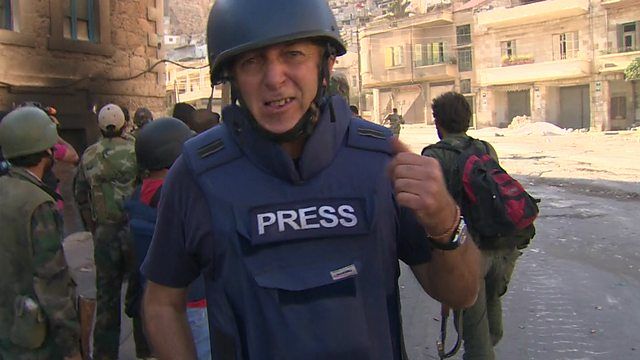In my first year of my career I started to realize that exits many types of journalism: investigative, politic, international, social, etc. and one of them catched my atention: war correspondent (or war reporter).
War correspondants are specialized journalists that travel to places where a war or conflict is developing and covers it. This is often considered the most dangerous form of journalism, because in the battle you can get injured or shot to death. because of that, a war correspondant must have some specific skills, such as resilience, flexibilty (because at any moment a conflict or war could start, for example), attention to detail, interpersonal skills (that includes verbal and written comunication for interviews) and I like to add, nerves of steel.
War correspondant Jeremy Bowen, BBC News.
A great example of this is The Gulf War (Desert Storm), known for being the first televised war. This conflict began in 1990 and ended a year later, where the United States sent troops to the Middle East due to an invasion of Iraq in Kuwait, and the world knew about this in live time thanks to the war correspondants.
United States troops in Middle East during The Gulf War, 1990.
Talking about money, a war correspondant gets paid for hours of job, in dollars they earn approximately bettwen $17 - $35/hrs , in CLP are $15.000 - $31.000/hrs. To be honest, I'm not interested in how much I could win, I'm more interested in being on the battlefield, giving my reports to the media outlet I'll be working for.

